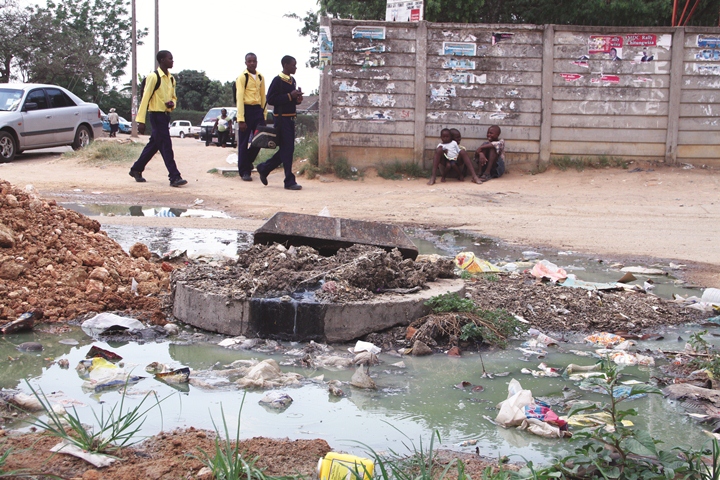J.Hyde
Apprentice
- Jul 31, 2020
- 212
Almost two weeks had passed since Robert Mugabe had been unceremoniously hauled off by French paladins. Since then, the various government structures had collapsed with varying speeds. The army was the first to disintegrate when it became clear that they would be expected to fight four nations simultaneously. The police quickly followed after realising that they'd be purged for their oppressive behaviour both now, and in the past. The individuals at the top of the pyramid had packed their bags and fled, either into the rural reaches of Zimbabwe, where they could disappear into the bush or the rural populace, while others left the country. Those who weren't blessed with the power or finances to flee had just given up and gone home, the corrupt regime had lost its leaders, so there was no one left to rally around.
While the primary organs of the state, such as the military, police, and the secret police, were the quickest to collapse, the civil initiatives, such as the Zimbabwe Energy Supply Authority (electricity), the Ministry of Water Resources Development and Management (water), the Civil Aviation Authority of Zimbabwe (airports), TelOne and Telecel (mobile and landline phones, and internet), Zimpapers and the ZBC (newspapers, radio, and television), had all slowly ground to a halt. Due to them all being state-owned, the sudden disappearance of the state meant that there was no one left to control them, no one to pay them. The organisations had all been slowly abandoned as a result.
As a result of the total collapse of Zimbabwe's utilities, the infrastructure, which was chronically under-funded, under-maintained, and constantly teetering on the brink of failure when Mugabe was in power, was given the final push.
 Sewage had quickly built up in the cities. The sewer systems had always been of a low quality. Many households in the capital, Harare, and elsewhere in rural and urban environments used communal or household cesspits and outhouses on a massive scale during Mugabe's regime due to the frequent periods of the sewer system being unable to cope with taking away their human waste. The cessation of water and sewer operations meant that sewage was beginning to build up and overflow. The stench of effluent was beginning to settle on the streets of the towns and cities, while piped water, which was for the most part contaminated with sewage at the best of times, had stopped working altogether.
Sewage had quickly built up in the cities. The sewer systems had always been of a low quality. Many households in the capital, Harare, and elsewhere in rural and urban environments used communal or household cesspits and outhouses on a massive scale during Mugabe's regime due to the frequent periods of the sewer system being unable to cope with taking away their human waste. The cessation of water and sewer operations meant that sewage was beginning to build up and overflow. The stench of effluent was beginning to settle on the streets of the towns and cities, while piped water, which was for the most part contaminated with sewage at the best of times, had stopped working altogether.
 Citizens were now having to venture to freshwater sources on foot, such as the Cleveland Dam near Harare, to get their water. Rural communities were better off due to the ability to use locally sourced wells, springs, and boreholes, even if they were usually polluted with waste, cities had to suffer due to there being no nearby water sources.
Citizens were now having to venture to freshwater sources on foot, such as the Cleveland Dam near Harare, to get their water. Rural communities were better off due to the ability to use locally sourced wells, springs, and boreholes, even if they were usually polluted with waste, cities had to suffer due to there being no nearby water sources.
Failed supplies of petrol and diesel meant vehicles couldn't be used. The logistics system that brought what little food Zimbabwean agriculture produced for the population to the towns and cities was compromised, while the closing of the borders and airports had disrupted the food imports that Zimbabwe depended on for the bulk of their food. Once electricity had shut down, the media, telecomms, and newspapers, were quick to follow suit and shut down. With no electricity, how does one operate computers, telephones, or cell phone masts?
Zimbabwe, in summary, had suddenly taken a massive leap back in time by around 500 years.
While the primary organs of the state, such as the military, police, and the secret police, were the quickest to collapse, the civil initiatives, such as the Zimbabwe Energy Supply Authority (electricity), the Ministry of Water Resources Development and Management (water), the Civil Aviation Authority of Zimbabwe (airports), TelOne and Telecel (mobile and landline phones, and internet), Zimpapers and the ZBC (newspapers, radio, and television), had all slowly ground to a halt. Due to them all being state-owned, the sudden disappearance of the state meant that there was no one left to control them, no one to pay them. The organisations had all been slowly abandoned as a result.
As a result of the total collapse of Zimbabwe's utilities, the infrastructure, which was chronically under-funded, under-maintained, and constantly teetering on the brink of failure when Mugabe was in power, was given the final push.


Failed supplies of petrol and diesel meant vehicles couldn't be used. The logistics system that brought what little food Zimbabwean agriculture produced for the population to the towns and cities was compromised, while the closing of the borders and airports had disrupted the food imports that Zimbabwe depended on for the bulk of their food. Once electricity had shut down, the media, telecomms, and newspapers, were quick to follow suit and shut down. With no electricity, how does one operate computers, telephones, or cell phone masts?
Zimbabwe, in summary, had suddenly taken a massive leap back in time by around 500 years.



